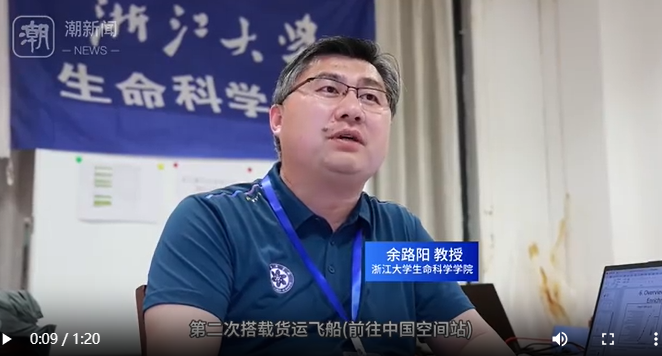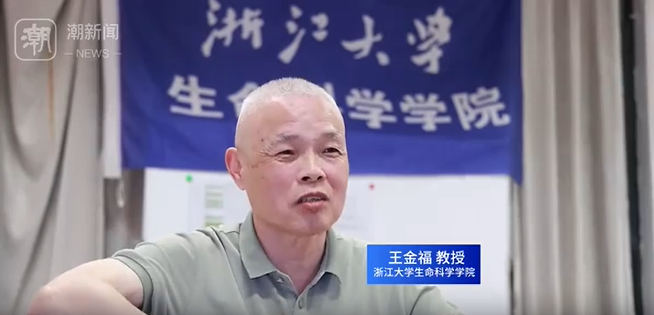
Source: Tide News client
On the evening of January 17, the Tianzhou-7 cargo spacecraft was successfully launched, carrying stem cell experimental units from the Space biology project team led by professors Yu Luyang, Wang Jifu and Wu Mengrui from the School of Life Sciences of Zhejiang University. This launch is not only another major achievement in the history of manned spaceflight in China, but also a historic breakthrough in the field of stem cell research.
It is well known that astronauts living in space for a long time face a number of health challenges, but osteoporosis is particularly prominent. In April 2016, Professor Wang Jinfu's team sent stem cells into space for the first time to explore their behavior in microgravity. Their study found that weightlessness is one of the main factors affecting astronauts' bones. Following this study, in 2017, the team again used the Tianzhou-1 cargo spacecraft to conduct an experiment on the directed induction of bone cell differentiation, and further explored the influence of microgravity environment on stem cell differentiation.

This is based on the continuation of this series of studies. Professor Yu Luyang said that previous experimental results have shown that in the space microgravity environment, bone marrow mesenchymal stem cells do not differentiate into bone cells as normal as on Earth, but tend to transform into adipose-like cells. This finding not only confirms the previous hypothesis, but also provides a new target for future drug development. The duration of the experiment will be extended from four days to seven days. This will give the team more time to observe and analyze how stem cells behave in the space environment. Professor Yu said that they look forward to conducting more in-depth and systematic studies on the changes of gene profiles and epigenetic characteristics of cells in space microgravity through new samples after the in-orbit experiment.

The implications of this research go far beyond space exploration. It not only provides a solution for astronauts' bone health in space, but also may bring new treatment ideas for osteoporosis in the elderly and pregnant women on Earth. As stem cell research continues to deepen, we have reason to believe that this research across the earth and space will bring more surprises for human health and medical science progress. Overall, the successful launch of Tianzhou-7 and the accompanying stem cell experiments once again demonstrate the power and potential of scientific research. We expect that this experiment will provide key clues to unlock the secrets of osteoporosis, and also open up new horizons for human space exploration and health protection."